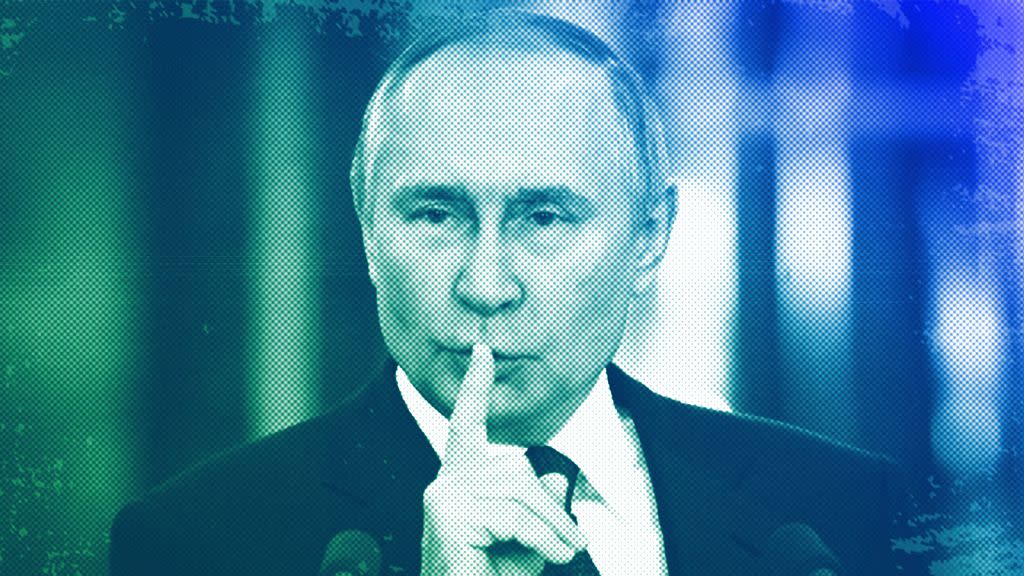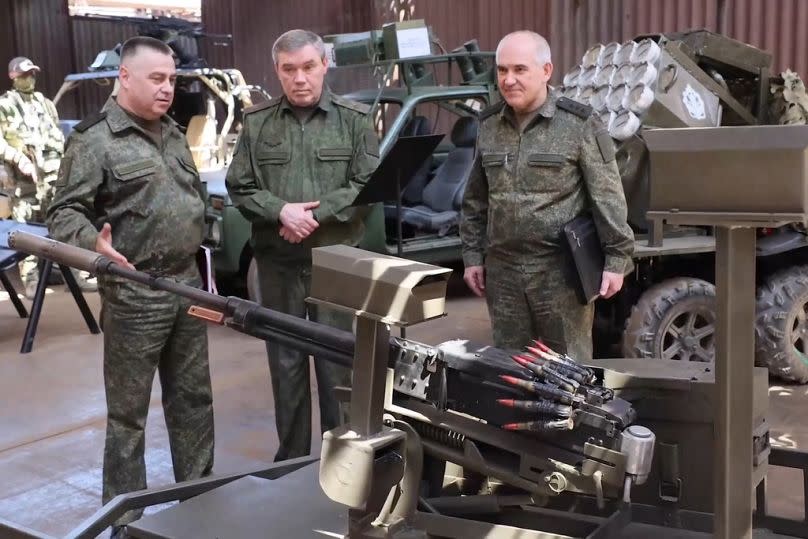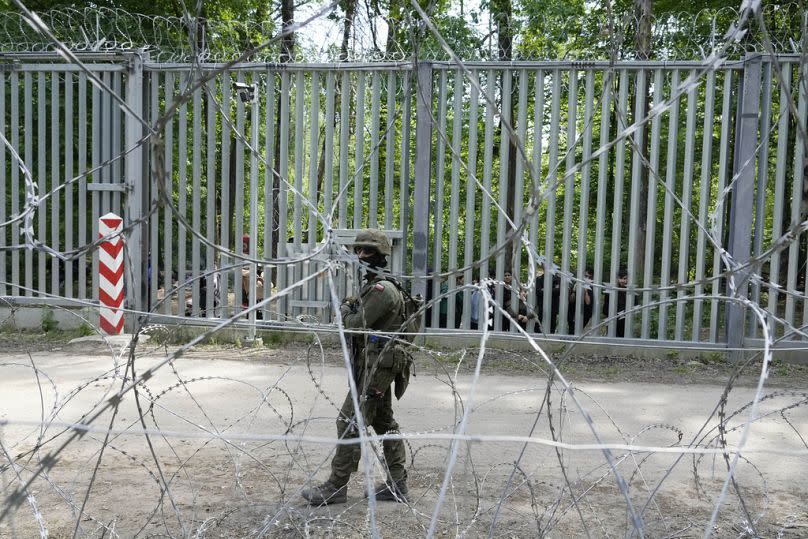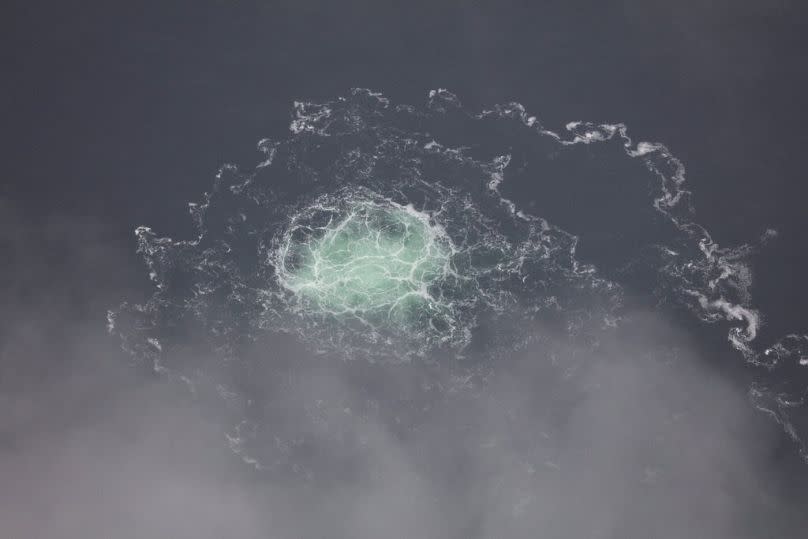Russia's ever-escalating hybrid war has the EU in its crosshairs

Despite an unfolding war and a continued cost-of-living crisis, life for the average European citizen is both peaceful and comfortable.
This is attested by the recently published Global Peace Index 2024, which shows that the list of the top 10 most peaceful countries remains dominated by European entries.
But scratch beneath the surface and a more sinister reality appears: a Europe engaged in a protracted and fierce hybrid war that demands our attention.
Since Russia's full-scale invasion of Ukraine, the Western world has committed an unprecedented level of military and economic support to stem the tide of unbarred violence against the country.
While this support has been a crucial part of ensuring Ukrainian independence, it has also escalated Russia's ongoing hybrid war against the West to new heights, notably targeting the European Union.
The Kremlin is not letting up
While Russia is the most prominent assailant, it does not stand alone in its anti-western efforts. It has diligently balanced its interests against those of the West, enlisting partners such as Belarus, Iran and North Korea.
By housing Russian nuclear weapons and troops and by arming and resupplying the Russian armed forces, these countries exacerbate Russian aggression. However, China remains a crucial part of the puzzle.
Its role was emphasised during the recent NATO Summit in Washington as a decisive enabler of Russian aggression in Ukraine and an active participant in the hybrid war against the transatlantic partners.

While not standing alone, Russia remains a uniquely aggressive actor, engaging in a multifaceted war against the West from the relative safety of the shadows.
After the conclusion of the recent European Parliament elections, consultancy firms identified tens of thousands of accounts spreading disinformation even as EU citizens sought to cast their ballots in an election that saw the steep rise of populist parties with pro-Vladimir Putin positions.
YouTube and X failed to act on disinformation ahead of EU vote - report
Why did the Russian disinformation machine target French voters?
Beyond the elections, fake narratives such as Bugatti-gate have emerged. This one spins the story of Olena Zelenska, First Lady of Ukraine, purchasing a luxury car for €4.5m during a time of particular duress for Ukraine.
Naturally, the false story, created using deep fake techniques, fake media outlets and falsified information, was quickly debunked — but not before knee-jerk reactions shaped political discourse across Europe, at least momentarily.
Subversions go up in scale
However, where disinformation might cause disruption and instability, more sinister efforts are at play, and webs of infiltrators and intelligence operators are increasingly unravelling within the European Union.
From prominent academics in the Baltics to expat florists in Slovenia with direct links to Russian intelligence services, the situation is looking increasingly grim.
Financial entities such as Pravfond enable Russian intelligence services to fund disruptive and destabilising efforts within Europe.

Pravfond expands the scope and scale of Russia's political warfare against Europe, with funding benefiting anti-democratic movements, political entities with pro-Russia, isolationist or protest-oriented stances, the recruitment of European assets, as well as large-scale intelligence and influence operations across continental Europe.
Alongside disruption from within, Russia and its close ally Belarus also seek to apply pressure on Europe's external borders.
Poland arrests 18 for alleged planning of hostile acts for Russia and Belarus
Russia and Belarus kick off second phase of nuclear weapon drills
By instrumentalising migration and providing guidance, routes and supplies to migrants, Russia and Belarus have adopted a ruthless method of hybrid warfare.
By exploiting desperate people and hurling them against European borders, they fan not only the need for robust border management responses but also the flames of anti-migratory rhetoric, often stemming from political parties with attitudes conducive to Russian interests.
From assassination to sabotage, anything goes
When looking at these hostile actions individually, they might not constitute more than a nuisance on their own.
Yet, collectively, these actions form a comprehensive hybrid warfare package where the boundaries are repeatedly pushed. In recent months, Russia has made the Baltic Sea a frontline for escalating its hybrid war against the West, targeting EU member states in the region with calculated manoeuvres to provoke them.
A key tool here has been reigniting border disputes in the Gulf of Finland, along the Narva River with Estonia, and in the sea surrounding the Russian enclave of Kaliningrad by unilaterally redrawing borders that directly violate international law.
At the forefront of Russia's escalating hybrid war against Europe has been a string of special operations conducted within the Schengen borders.

Several assassinations of political dissidents inside of Europe have occurred over the last decades of Putin's rule in Russia, but the recent attempt on the life of Armin Papperger, CEO of Rheinmetall, has opened a new frontier in attempts to subdue support for Ukraine.
Acts of sabotage have shaken Europe in recent years. As European intelligence services continue to outline an increase in Russia's probing efforts into defence industries, sea cables and crucial infrastructure, the future will likely bring further attempts to disrupt supply lines to Ukraine through sabotage.
NATO has upped 'vigilance' amid suspected Russian sabotage operations - Stoltenberg
Do we have a plan on how to deal with subsea cables sabotage?
Above us and at sea, European air traffic and shipping are increasingly targeted by attempts to jam the GPS systems relied on for safe navigation.
An ultimate consequence of such disruption might be catastrophic incidents causing irreparable damage to the environment or significant losses of civilian lives — a stark reminder of the gravity of the situation.
Keep an eye on Ukraine
With such significant pressure on Europe, it was perhaps no surprise when the Danish Defence Minister Troels Lund Poulsen noted in February that Russia would likely be in a position to test Article 5 and NATO solidarity within a three- to five-year time span.
This statement echoed the one by Germany's Defence Minister Boris Pistorius, who in January remarked that NATO should expect an attack on a member state within five to eight years, emphasising the need for unity and solidarity between partners.
With further escalations looming, one might be tempted to look towards NATO for solace.
Yet, with the recent assassination attempt on former US President Donald Trump and the poor performance of President Joe Biden in his bid for re-election, NATO will likely face a stark new reality if Trump takes office in November.
With the US pursuing an increasingly isolationist policy under Trump, a pivot to the east and a track record of statements sowing distrust in the alliance's unity, there is an increasing sense of urgency for Europe to take ownership of its security needs.
It's crucial for Europe to do what it takes to keep Ukraine in fighting shape should the US falter, as any other path would invite disaster.
Alexander Borum is Policy Leader Fellow at the European University Institute in Florence, focusing on the European Union Common Security and Defence Policy.
At Euronews, we believe all views matter. Contact us at view@euronews.com to send pitches or submissions and be part of the conversation.

